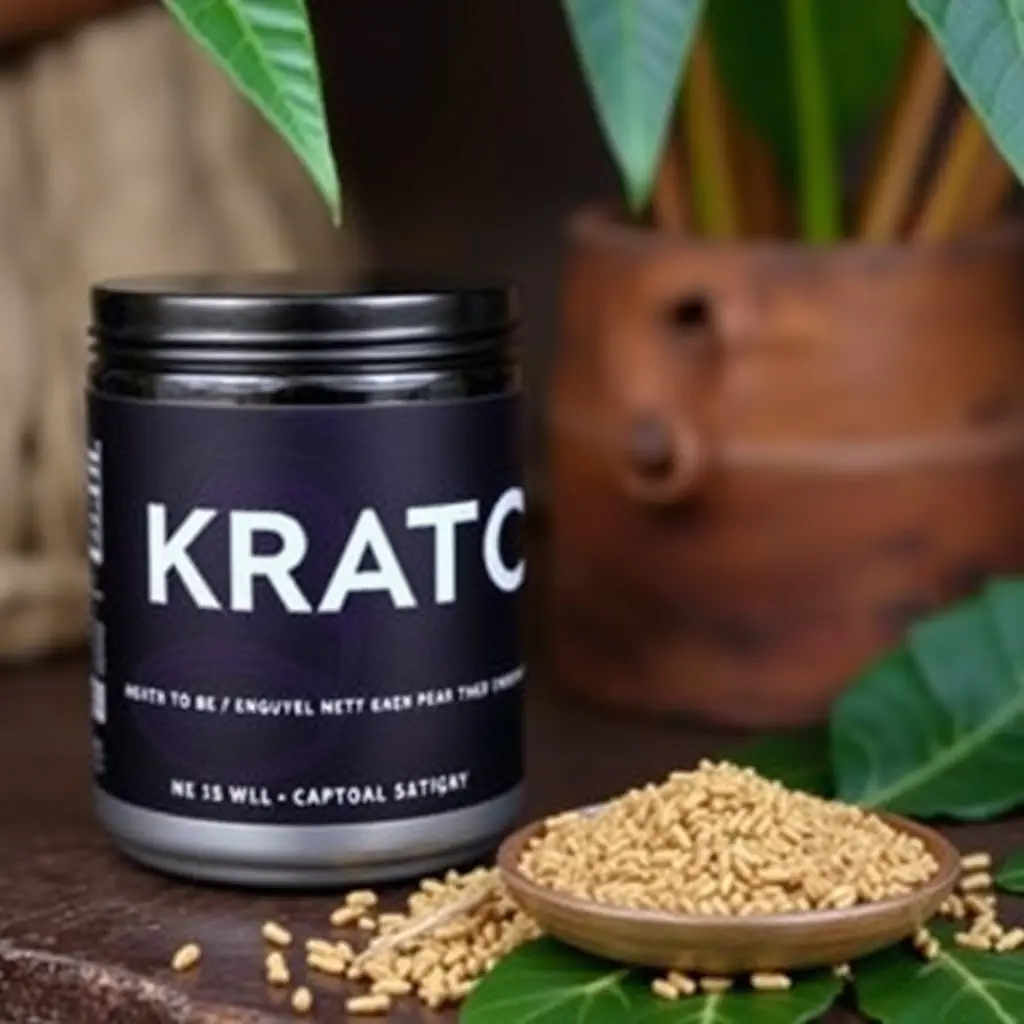Kratom, derived from Southeast Asian plants, contains alkaloids like mitragynine and 7-hydroxymitragynine that may offer anti-inflammatory benefits by interacting with opioid receptors. It shows promise for managing chronic inflammation naturally without the typical side effects of pharmaceuticals. However, traveling with kratom requires careful attention to its legal status: it's permissible in checked luggage but not typically allowed in carry-on bags due to its classification as a dietary supplement. Travelers must adhere to both federal aviation regulations and the specific laws of their destination, which can vary widely. It is essential to check with airport security authorities or refer to TSA guidelines before flying with kratom supplements to ensure compliance and avoid complications. When flying, always pack kratom in your checked luggage, and consider consulting a healthcare provider for advice on using kratom safely and effectively for inflammation reduction. Remember to take kratom at least an hour before departure to monitor its effects amidst the stresses of travel, stay hydrated, and employ stress management techniques to support overall well-being during your flight.
Exploring the potential of kratom as a natural supplement for inflammation reduction is the focus of this insightful article. Kratom, derived from the leaves of Mitragyna speciosa, has been examined for its anti-inflammatory effects, which could be beneficial for individuals looking to manage inflammation before flying. This piece dissects the legality and safety considerations of kratom use in travel scenarios, delves into the scientific mechanisms behind its active alkaloids, and provides practical advice on its application. Whether you’re a seasoned traveler or planning your first trip, understanding how kratom might aid in inflammation reduction is a valuable addition to your wellness toolkit.
- Understanding Kratom's Role in Inflammation Reduction and Its Legality for Flying
- The Science Behind Kratom Alkaloids and Their Anti-inflammatory Properties
- Practical Tips for Using Kratom Supplements Safely and Effectively to Manage Inflammation Pre-Flight
Understanding Kratom's Role in Inflammation Reduction and Its Legality for Flying

Kratom, a plant originating from Southeast Asia, has garnered attention for its potential anti-inflammatory properties. The leaves of kratom contain alkaloids such as mitragynine and 7-hydroxymitragynine, which are believed to interact with the body’s opioid receptors and may contribute to the reduction of inflammation. This action is thought to be beneficial for individuals suffering from conditions characterized by chronic inflammation. The anti-inflammatory effects are particularly relevant for those seeking natural alternatives to pharmaceutical interventions, which often come with a range of side effects. Research into kratom’s mechanisms and efficacy continues, but early findings suggest it may offer a promising therapeutic option for inflammation management.
When considering the use of kratom supplements, it is equally important to understand its legal status, especially in relation to travel, such as flying. The legality of kratom is subject to varying regulations across different countries and within the United States at the federal and state levels. As of the knowledge cutoff date, the Federal Aviation Administration (FAA) permits the transportation of kratom in checked luggage, provided it is not in liquid form and is packed according to airline guidelines. However, travelers should be aware that bringing kratom on an aircraft as a carry-on item is generally not allowed, due to its classification as a dietary supplement. It is imperative for individuals planning to fly with kratom to check the most current regulations of both their departure and destination locations, as laws can change and may differ by jurisdiction. Always consult with airport security authorities or refer to the TSA guidelines before flying with kratom supplements to ensure compliance with all applicable travel regulations.
The Science Behind Kratom Alkaloids and Their Anti-inflammatory Properties

Mitragyna speciosa, commonly known as kratom, has garnered attention for its potential anti-inflammatory effects, which are attributed to its unique alkaloid profile. Scientific research indicates that kratom’s primary alkaloids—mitragynine and 7-hydroxymitragynine—may play a significant role in modulating inflammation responses within the body. These compounds interact with various receptors, including opioid receptors, which can influence the body’s inflammatory pathways. Preclinical studies have shown that kratom alkaloids can inhibit certain cytokines and enzymes linked to the inflammatory process, suggesting a mechanism by which they might reduce inflammation-related symptoms. This biological activity could be particularly beneficial for individuals experiencing chronic inflammation or conditions such as arthritis. Additionally, the anti-inflammatory properties of kratom are being explored in relation to other health benefits, and ongoing research continues to shed light on its therapeutic potential. For those considering flying with kratom, it’s crucial to be aware that the legal status of kratom varies by country and airline regulations, so travelers must adhere to the specific rules and restrictions in place for transporting kratom products. Understanding the science behind kratom’s alkaloids is essential for appreciating its complex interactions with the body and for responsible use within legal frameworks.
Practical Tips for Using Kratom Supplements Safely and Effectively to Manage Inflammation Pre-Flight

When considering the use of kratom supplements for inflammation reduction, particularly prior to flying, it’s crucial to approach their use with both awareness and caution. Kratom, derived from the leaves of Mitragyna speciosa, can have various effects on the body, including pain relief and anti-inflammatory properties. To harness these benefits safely and effectively, one should start by consulting with a healthcare provider to determine appropriate dosage and to ensure that kratom is suitable for their specific health needs. It’s equally important to be mindful of the timing; users should take kratom supplements at least an hour before their flight to allow the body to respond to its effects without the additional complications that flying introduces.
Furthermore, when traveling by air, adhering to airport security regulations is paramount. Kratom powder or leaves should never be packed in carry-on luggage due to their potential for misinterpretation by security personnel. Always keep kratom supplements in checked baggage to avoid any unnecessary complications at the airport. Additionally, staying hydrated and managing stress are complementary strategies to effectively manage inflammation during travel. Adequate hydration can help maintain the body’s natural inflammatory response mechanisms, while stress management techniques such as deep breathing or meditation can alleviate the mental tension that may exacerbate physical discomfort. By integrating these practical tips into your pre-flight routine and following the guidelines provided by aviation authorities regarding the transport of kratom, you can enjoy a safer and more comfortable flight experience while managing inflammation effectively.
Kratom’s potential as a supplement for inflammation reduction offers promising insights for individuals seeking natural alternatives before flying. The anti-inflammatory properties of its alkaloids, as detailed in the science section, provide a clear understanding of how kratom might aid in managing pain and inflammation. It is crucial to adhere to legal guidelines when using kratom, as outlined in the article’s opening discussion. By following the practical tips provided for safe and effective use, travelers can explore the benefits of kratom supplements with confidence. Consider incorporating kratom into your pre-flight routine, mindful of its legal status and dosage guidelines to ensure a comfortable journey.






